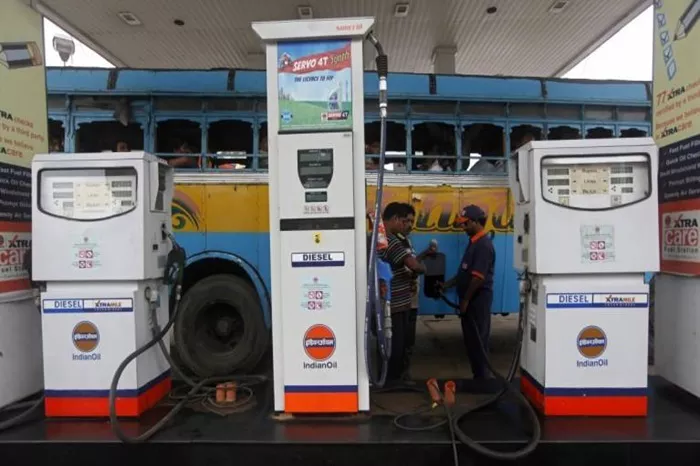Oil marketing companies (OMCs) in India update petrol and diesel prices every day at 6 a.m., keeping consumers informed despite the volatility in global markets. These daily revisions align with shifts in international crude oil prices and changes in currency exchange rates, influencing fuel costs across the nation.
As of December 4, fuel prices in major cities are as follows:
In Delhi, petrol costs ₹94.72 per litre, and diesel is priced at ₹87.62 per litre.
Mumbai sees the highest rates, with petrol at ₹103.44 per litre and diesel at ₹89.97 per litre.
Chennai has petrol priced at ₹100.85 per litre and diesel at ₹92.44 per litre.
In Kolkata, petrol is ₹103.94 per litre, while diesel stands at ₹90.76 per litre.
Noida and Lucknow both have petrol priced at ₹94.66 and ₹94.65 per litre, respectively, with diesel in both cities costing ₹87.76 per litre.
In Bengaluru, petrol is ₹102.86 per litre, and diesel is ₹88.94 per litre.
Hyderabad has some of the highest prices, with petrol at ₹107.41 per litre and diesel at ₹95.65 per litre.
Jaipur sees petrol priced at ₹104.88 per litre and diesel at ₹90.36 per litre.
Trivandrum records the highest diesel price at ₹96.43 per litre, while petrol costs ₹107.62 per litre.
In Bhubaneswar, petrol is ₹101.06 per litre, and diesel is priced at ₹92.91 per litre.
Fuel prices have remained stable across the country since May 2022, following tax reductions by the central and state governments, which helped moderate the impact of global oil price volatility.
These prices are shaped by several factors, including the following:
Crude Oil Prices: As the raw material for petrol and diesel production, fluctuations in global crude oil prices directly influence domestic fuel prices.
Exchange Rate: As India is a major importer of crude oil, changes in the value of the Indian rupee against the US dollar have a significant impact on fuel costs. A weaker rupee leads to higher fuel prices.
Taxes: Fuel prices are subject to various taxes, including excise duties imposed by both the central and state governments. These taxes can vary significantly across different regions, contributing to price discrepancies from one state to another.
Refining Costs: The cost of refining crude oil into petrol and diesel also plays a role in setting prices. This can fluctuate depending on the type of crude oil used and the efficiency of refineries.
Demand: High demand, particularly during peak travel seasons, can push prices up as supply struggles to keep pace with consumption.
Related topic:
Brent Oil Price Surge Signals Continued Upward Momentum
OPEC+ Faces Tough Choices on Production Cuts as Market Conditions Shift

